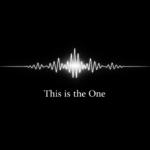“Above All Else – God” – Genesis 1:1
Introduction: Above All Else
It’s so easy to acquire knowledge and information these days, isn’t it? Look, you just grab your phone, say “Siri, or Alexa, or OK, Google” and ask, “What is the speed of light in miles per second?” And there you have the answer!! Or you ask, “What is the lowest place on earth?” And the answer is almost instantaneous. You can even try to test Google by asking Google what is the meaning of life? Let’s ask… So, there you have it… Google apparently knows everything!!
Back in the olden days, if you wanted to learn something, you did research in a series of books called Encyclopedia, which, if you ask Google these days, is from a compound Greek word – enkuklios (encircling) + paideia (training)… therefore meaning “all around education.” An encyclopedia had information about various topics, all arranged alphabetically. Back in the even older olden days, if you wanted to learn something, you asked your parents, or maybe even better, your grandparents – they knew everything!!
So, in those olden days, when I went to Seminary to study to become a pastor, I had to learn a lot (not everything, but a lot) about God… you know… ‘everything you need to know about God but were afraid to ask.’ That class was called “Systematic Theology” and you learned all about God in a topical encyclopedia kind of format. For instance, here are some topic headings in a typical Lutheran “Systematic Theology” text book – The Doctrine of God, of Creation, of Divine Providence, of Christ, of Saving Faith. But that’s not all, the topics expand to include Holy Baptism, the Lord’s Supper, the Church, the Public Ministry, and the Last Things.
A few months ago, in my office I found this little booklet called “Above All Else: What the Bible Teaches.” I don’t even remember where I got it from. On the back cover it explains that the booklet introduces you to “the essentials of our faith: what the Church believes, and what it means to live ‘in Christ.’” I thought that that would be a great series of sermons to leave you with in these next three months. It’s not Google, nor is it an encyclopedia, but it is a great little book to present the basic truths of Christian teaching. Combined with my text book, and another book titled “Lutheranism 101,” and Martin Luther’s Small Catechism – his own “Systematic Theology” book for parents to teach their children – I will use these resources to ground us in the Bible’s revelation of God. So, buckle up for a long ride… from the beginning (about God) to the end (our own death and resurrection to eternal life).
1. God Exists
Today’s topic is simply – God! The first thing we really need to do is to establish the existence of God. So… I asked Google, and ironically Google directed me to an encyclopedia page which stated that the existence of God is a proposition in religion that a supreme supernatural being created everything. Another listing pointed to a scientist’s calculation that there is a 67% chance that God exists. A third link said that personal religious experience is one way of “proving” that God exists.
But that’s the real question, isn’t it? If a religious proposition states that a supernatural being created everything, and that that being is perfect, and powerful, and good… well, how do we really KNOW that there is such a being? We cannot see, hear, or touch Him. No one was there with a video camera to document plants and animals springing up everywhere on those days of creation. No one was at the empty tomb to capture the moment when Jesus burst out of the grave and rose from the dead. How can we know, when we can’t experience Him with our senses?
Music is invisible, but we can hear it. Air is invisible but we can feel it blowing against our cheeks, and we need to breathe it in to live. Even if you’re blind and you can’t see the sun, you can feel its life-giving warmth. In a similar way, God is beyond the reach of our senses, but we know He is there. We know He is real. We know He is real from the Bible, His own written record. From the first page to the last page, the Bible speaks of God as existing. The Bible’s first words are: “In the beginning, God…” That is to say… He is. The Bible’s last words are: “The grace of the Lord Jesus be with God’s people.” God is not the creation of human imagination. Rather, we are the creation of God’s imagination, and of His love. He is real… in fact, the greatest of all realities.
2. Knowledge of God
a. Natural knowledge of God
While we do not and can not prove that God exists, there is evidence of God’s existence in what is called the natural knowledge of God – God’s revelation of Himself in the realm of nature and understanding.
Most nations and cultures in history have believed in the existence of a supreme being. Even peoples living in relative isolation from the rest of the civilized world had some concept of a god. That understanding of, that belief in the existence of a god often originated from the existence of the world, and of sun and moon, rain, crops, food and even from the existence of human life itself. People look around at their environment and struggle to conclude that mountains, rivers, trees and animals all came about just by accident, or by chance. This is what Paul wrote about in Romans 1: “What may be known about God is plain to them… for since the creation of the world God’s invisible qualities have been clearly seen, being understood from what has been made.” This is known as the cosmological proof of God’s existence.
There is also the argument from design. When we look at our world and even at our human bodies, we cannot fail to see beauty and order that, again, point to a Great Designer. The details of the perfect composition of the atmosphere to sustain life, and the perfect distance of the earth from the sun (to receive that light and heat travelling at 186,000 miles per second to get here), and the rotating and revolving of the earth to generate day and night, and the seasons – all those things testify to a creator. Those awe-inspiring questions that God asked Job fit in here: Were you there when I created the earth? Did you fix the limits of the ocean’s water? Did you set the stars in their places? Do you send the lightning bolts on their way? We don’t… God DOES!!
We could also consider the complexity of our human bodies – eyes that give sight and are protected by eye sockets, brows and lids; hearts and the blood circulation system; muscles and nerves and the skeletal system; lungs and respiration; and a brain that, like a super computer, knows A LOT and makes every part of the body function in harmony. In Psalm 139, David testifies to the creativity and the love of God: “I praise You for I am fearfully and wonderfully made.”
Besides the arguments from the existence of the world and from the design of the world, there is also the moral proof of God’s existence. We know that there is a God because morality is hardwired into our very being. Although there seems to be a broadening sense in our complex world about what is acceptable human behavior – consider the senseless hate crime a week ago of the killing of several black people in Buffalo – most people in our world have an inner sense of what’s right and what’s wrong. People just know that it’s not OK to murder, or steal, or lie. People might feel a twinge of excitement as they engage in an extra-marital affair, but there’s an even greater twinge of guilt as they do. People may experience an adrenalin rush in destroying public property or a neighbour’s property, but it generally comes out of some anger or hatred. We try to silence our conscience as we carry out those unacceptable behaviors, and we may succeed for a time. But in the end a voice within us – the voice of conscience directs us to the right thing, and directs us to God. We know that there is a God because our heart says so. Call it a hunch. Call it a God-shaped hole. Again, Paul points this out, in Romans chapter 2: “Gentiles (who do not have the law) show that the requirements of the law are written on their hearts, their consciences bearing witness, and their thoughts now accusing, now defending them.”
But this natural knowledge of God – whether it’s the existence of the world, the design of the world, or our moral compass – this natural knowledge of God cannot bring us into a good and right relationship with this God that we think must exist. This natural knowledge of God is too vague. To know about God is not enough. We must know God.
b. Revealed knowledge of God
That’s why God has revealed Himself more personally and directly in the Scriptures, in the Bible, in human language, in words and in a message that tell us clearly who He is, what He is like, and what He has done – not just with respect to our creation, but also with respect to our salvation.
Adam and Eve were created in the image of God and had an intimate fellowship with Him. But when they sinned, they corrupted that knowledge of God. God seemed to speak directly with many of the early characters in the Bible – Adam and Eve, Noah, Abraham, Jacob, Moses. Later, He called some into a special service and gave them a message about Himself to convey to others. God led many of His prophets to put down in writing the message they had received. That’s how the book of Hebrews begins: “In the past God spoke to our forefathers through the prophets at many times and in various ways, but in these last days He has spoken to us by His Son.” Yes, at the right time, God sent His only Son to reveal to us in a most clear way His own heart of love and mercy. Hebrews 1 continues: “The Son is the radiance of God’s glory and the exact representation of His being.” That means if we want to see God, we look at Jesus; if we want to hear God, we listen to Jesus; if we want to know God, we get to know Jesus first. We can do that because Jesus also sent special messengers, the apostles, to not only continue His gracious work, but to write about it in the New Testament so that we can know God and Jesus’ saving mission in the world. In late June, the Bible will be its own sermon topic, so I’ll leave more detail until then.
Something else we want to pick up from God’s special revelation of Himself is that while there is only one God, there are three “Persons” in the Godhead – Father, Son, and Holy Spirit. Those are actually the topics of the first three messages in this sermon series. Ever since the early third century, Christians have used the word “Trinity” to describe the concept of one God in three Persons. There are not three gods, nor is there only one person. One God. Three Persons… all equally divine and glorious. Three in One. I will be at the Lutheran Church – Canada Convention on June 12, but if you pay attention to the long Athanasian Creed on that day, it will unpack the teaching about the Trinity in more detail.
c. His nature
We also need to understand what God is like. Is He a Santa Claus that gives us everything we want? Is He a vengeful and punishing judge? Is He an aloof and distanced God who cares little for what He has created? Is He a stern teacher who just wants us to do the right thing?
Thankfully the Bible tells us about God’s nature and His characteristics. Here are 13 words / phrases / attributes that help us to understand what God is like:
Spirit (a personal being without a body) Eternal (without beginning and without end)
Unchangeable (immutable) Almighty, all-powerful (omnipotent)
All-knowing (omniscient) Present everywhere (omnipresent)
Holy (sinless and hating sin) Just (fair and impartial)
Faithful (keeping His promises) Good (kind, desiring our welfare)
Merciful (full of pity) Gracious (showing undeserved kindness, forgiving) Love
3. God made, preserves, provides, protects ME!
While we confess in the Apostles’ Creed a cosmological understanding of God as Creator – “I believe in God, the Father Almighty, Maker of heaven and earth” – when Martin Luther explains that first article of the Creed, He makes it very personal – “I believe that God made ME!!” He unpacks that by saying that God “has given me my body and soul, eyes, ears, and all my members, my reason and all my senses, and still takes care of them.” It’s grand to consider that God is so impressive that He made everything. It’s wonderful to consider that God is so intimate that He created each one of us individually with our own fingerprints and retinas and characteristics. David said it well in Psalm 8 – “When I consider your heavens, the work of your fingers, the moon and the stars, which you have set in place, what is man that you are mindful of him, the son of man that you care for him?” Impressive and intimate at the same time!! WOW!! What a God!!
Luther goes on to say that God provides for me – “clothing and shoes, food and drink, house and home, spouse and children, land, animals, and all I have. He richly and daily provides me with all that I need to support this body and life.” That’s the caring and loving God we have and believe in.
Finally, Luther explains that God also defends and protects us from danger and evil. Even when dangers and evils do impact our lives – because the world is broken, and there is evil out there – even then, especially then God promises to work His good in ALL things, in ALL circumstances.
God is good. And He is God… Above All Else! Amen.






